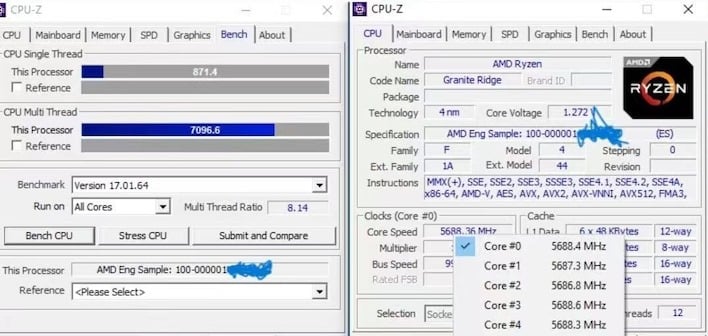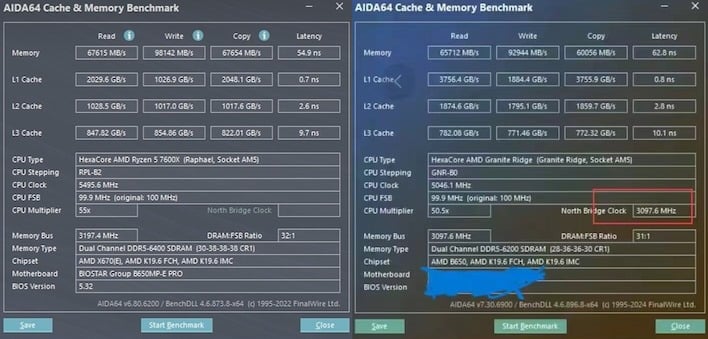Amidst Multiple Leaks, AMD Admits Ryzen 7000X3D Will Still Beat Zen 5 Ryzen 9000 In Gaming
He does also say that the difference between Ryzen 9000 and Ryzen 7000X3D is smaller than "you would expect," and we actually suspect that some games will prefer the higher IPC and improved cache bandwidth of Zen 5 over the larger cache of the older X3D parts. Still, it's not really surprising to hear that fast CPUs with smaller caches don't quite perform as well in gaming than somewhat slower CPUs with big caches. We saw the same thing when Zen 4 came out, and the Ryzen 7 5800X3D was as fast or faster than most of the Zen 4 CPUs when it came to games.I asked Woligroski if the 9950X would take the crown of the fastest gaming chip on the market. "Is it the fastest in gaming? It's faster than the competition in our tests. X3D is still the king of the hill, but by a much smaller margin than typically between X3D and non-X3D," Woligroski responded. "So a 7800X3D would, yes, be faster than 9700X, but maybe not by as much as you would expect."-- Paul Alcorn, Tom's Hardware

In another post, HXL demonstrates a 5.7 GHz all-core overclock on the Granite Ridge ES processor. 5.7 GHz might not sound that high when Intel is shipping CPUs that boost to over 6 GHz, but keep in mind that the single-core boost clock of the Ryzen 5 9600X is only 5.4 GHz. Doing 5.7 GHz on all cores is quite impressive, and the demonstrated CPU-Z multi-core score of 7096.6 points is alarmingly close to the 7562 score we get for our Ryzen 7 8700G which has a full two extra cores over the Granite Ridge ES chip.
HXL says "TSMC 4nm looks great!" and while this overclock isn't an extreme example, it's likely that it was done under air cooling, and possibly even relatively modest air cooling. AMD has lowered the TDP guidance for its Zen 5 processors compared to their Zen 4 equivalents; where the Ryzen 5 7600X is marked down for a 105W TDP, the Ryzen 5 9600X only needs 65W. A Ryzen 5 9600X at circa-6-GHz boost could be the new budget gaming champion for a while.



